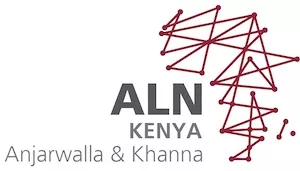In the legal fraternity, globally, the last few weeks have seen a raft of cancellations and postponements of court hearings, meetings and conferences etc. This is no doubt the experience for all sectors. The issue of course - coronavirus. The effect is sobering and again highlights a truism in life that we are never actually in control and that perhaps it is in accepting this reality that we can be better placed to deal with gentle and more disruptive forces that cross our paths ad infinitum.
However, it is one thing for a conference to be postponed, it is quite another for court proceedings to encounter this same fate, especially when key rights may be at stake. And yet because of the aggressive airborne nature of coronavirus, how easily it can be spread and with literally deadly effect, our "official" court systems on the continent of Africa will find it difficult or will be unable to cope with the fall out from the virus.
With legacy court backlogs having to be cleared and with increasing contemporary matters to be handled, the current pandemic that seems to be in the making will wreak havoc on our judicial systems' ability to administer their workloads and ultimately to dispense justice. This is plainly a rule of law issue whether of our making or not.
So what can be done to mitigate some of the challenges? Perhaps one word is apt. Technology.
Technology, or more aptly, going digital, is not a silver bullet as the cliché goes, but surely court ecosystems built around user-friendly everyday digital technology, would go a long way to ensure people on the African continent have access to the courts and avoid last-minute court adjournments, because witnesses are unable to travel given travel bans imposed by their respective companies; or worst still, closure of the courts due to legitimate fears of such public buildings being breeding grounds for the virus.
And what is this technology that could be so helpful? We are not necessarily talking about overly elaborate systems, we are talking about technologies that are literally in everyday usage, such as secured video conferencing facilities, secure encrypted document exchange platforms and digital evidence management systems. Were such facilities routinely in place in our jurisdictions, perhaps there would be no real reason for the cogs of the court system to be grinding to a halt in these extreme circumstances; and in more normal times, these same court systems would be able to flourish in their operations as effective centres/systems of justice, engaged in the medium of exchange of those they are there to serve.
So where can we find good examples of court systems on the continent in Africa, who we believe are better placed to handle the current crisis we are in. Take the COMESA Court for example, set up to handle interstate legal disputes across jurisdictions in Eastern and Southern Africa, with the logistical headache of dealing with a vast geographical area. The Court has gone through a process of rationalising its challenges and in doing so has fairly recently found solutions by deploying technologies that answer particular needs. The Court now has at its disposal, as does its service users, what seems to be a fairly comprehensive digital evidence management system. This system apparently now enables many of the court management procedures to be carried out seamlessly, in a user-friendly manner and achievable literally anywhere on the planet where the service user has access to a computer and internet (see COMESA NewsLetter Issue #: 572_6th Feb 2019 and COMESA goes digital - an Africa Tech Article Moreover, embedded in the system are video conference facilities that make pre-conference hearings a doddle, now efficient and inexpensive affairs; the system has a document exchange facility across a secure, efficient user-friendly platform. The trial advocacy tools are intuitive and provide all stakeholders in a dispute with simplified presentation features that all can follow simultaneously and remotely where appropriate, assisting the efficacy of how cases are handled by all concerned.
And guess what, the anecdotal feedback is that the COMESA Court's performance indicators are miles ahead of where they were before the systems and the technology were in place. A surprise? We think not and what's more, one would hazard a guess that coronavirus is not having such a heavy impact on the COMESA Court's ability to function.
So what does this all mean? Our takeaway is that for positive developments to happen as illustrated in the COMESA Court experience, that the will to see this through has to be meaningful and steadfast. We must, as collective bodies in the legal sectors and across the continent of Africa, judges, law societies, practitioners, court administrators, all envisage well designed digitised and accessible court systems as being our norm. Further, our design effort of such systems should retain the person-centred quality, so that the human element institutionally and in terms of interaction with service users is not diminished, lest we dilute the vital human relations aspect of law, governance and justice.
To conclude, it is firstly from depicting well-functioning fit for purpose justice systems that we can then begin to find solutions, in a joint up way, to make an accessible digitally based court system a reality throughout Africa; it is within our reach. And what better time to bring this to the table when the absence of what we need is so palpable.
The content of this article is intended to provide a general guide to the subject matter. Specialist advice should be sought about your specific circumstances.


